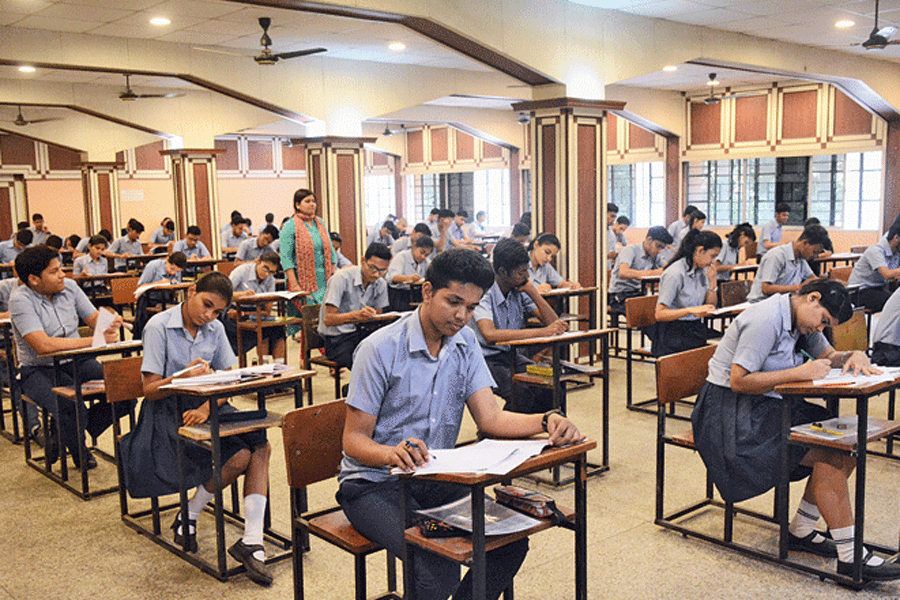Government drive to bring parity in school board evaluation


A newly set up government organisation is studying the assessment pattern of each school board as part of an effort to evolve standard norms on evaluating children’s learning.
Amid varying pass rates and question patterns among school boards, Parakh, the organisation created by the ministry of education, is set to develop guidelines on model assessment practices.
There are 60 school boards across the country. Each board follows its own syllabus and examination practices. The pass rate varies to a great extent among boards. For example, the pass rate was 57 per cent in Class X in the Meghalaya board in 2022 and 61 per cent in Madhya Pradesh, while it was 99.85 per cent in Kerala and 97.6 per cent in Telangana.
Parakh is holding workshops with school boards across the country to seek their feedback on equivalence. Six workshops have been held in the past two months with boards from across the country to seek their feedback on equivalence.
The Parakh teams are seeking responses on how the boards conduct assessment. Parakh has developed a template to understand the quality of questions asked in the exams by each board. The template seeks responses on weightage to content, proportion of difficult questions, proportion of questions that can be answered by recalling content and proportion of questions taken directly from the previous year's papers.
Prof. Indrani Bhaduri, chief executive officer of Parakh, said the effort was to bring about commonality among boards in assessment practices, a prerequisite for achieving equivalence. Once equivalence is established, the boards will be able to join the Academic Bank of Credit where students can deposit their academic credits and use them for the award of degrees in the future. The equivalence among boards in assessment will ensure a level playing field.
"Our objective is to understand if the questions are really assessing the competencies of children or the exercise is becoming a mere routine affair. Based on the feedback from the boards, Parakh will develop guidelines to build some commonality to achieve equivalence among boards. Each board will improve its assessment practices so that it can test the competencies of children. It does not mean cloning. Each board will enjoy the freedom to retain its flavour by including additional content," Bhaduri said.
The principal of a college under Delhi University (DU) said the variation in results of school boards had been increasing in the past two decades. Some boards are awarding grace marks and moderation marks to increase the pass rate and performance of students.
“The boards must agree to some standard assessment so that no student is victimised in higher studies. The Common University Entrance Test (CUET) for undergraduate courses is not a robust system. The number of candidates scoring 100 percentile is around 22,000 in CUET this year, most of whom would try for DU colleges. There is no respite from the problem of high cut-offs,” Prof. Manoj Sinha, the principal of Aryabhatta College in New Delhi, said.
He said there was a need to monitor and streamline the evaluation practices of each board.
Bhaduri said Parakh had also developed a policy for school-based surveys that seek to empower the schools to assess children in lower classes regularly and develop a holistic progress card reflecting every child's strengths and weaknesses in areas such as cognitive, physical, arts, language, social, emotional and learning habits.
Bhaduri said the policy prescribed specific curricular goals in each area. For example, one curricular goal is to ensure children of Classes II and III read with understanding. The teacher will give certain text to be read by the child and questions will be asked to assess the sensitivity and feelings of the child along with understanding of the text.
"The teacher will ask how the student will behave if they were in place of the character. The child may be asked to express or enact such feelings. This would suggest the depth of understanding," Bhaduri said.
Parakh will also sensitise boards to ensure that their affiliated schools provide required training and facilities to children to excel in learning.